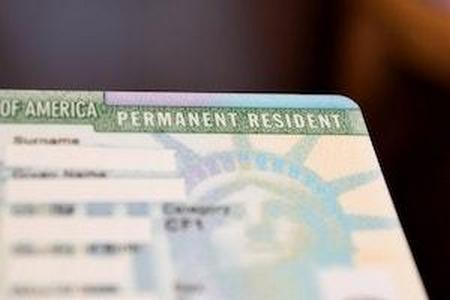Green Card 101: A Primer for Lawful Permanent Residents
 Immigration law is complex. As one navigates through the process of obtaining visas and more permanent status, it is not uncommon to become confused about one’s rights and responsibilities. Nowhere is this more fraught than if one is awarded a green card, which confers lawful permanent residence (referred to commonly as ‘LPR status’) on the holder. Upon being granted your green card, you are also granted rights under the law which cannot be taken away unless you lose your status.
Immigration law is complex. As one navigates through the process of obtaining visas and more permanent status, it is not uncommon to become confused about one’s rights and responsibilities. Nowhere is this more fraught than if one is awarded a green card, which confers lawful permanent residence (referred to commonly as ‘LPR status’) on the holder. Upon being granted your green card, you are also granted rights under the law which cannot be taken away unless you lose your status.
More Than a Visa, Less Than Citizenship
Rather than relying on immigrant visas like H1Bs or F1s, LPR status is very often a kind of intermediate status for those who have reasons to live or work in the United States, but may not wish to renounce his or her original citizenship. It is also common to see LPRs who received their green cards via relief applications, such as those who apply each year under the Violence Against Women Act (VAWA). Either way, lawful permanent residents have rights and responsibilities that are enshrined in the law, and may not be taken away unless they are stripped of their green card. Many of these rights are things that citizens take for granted, but LPRs often do not have that luxury.
A partial list of rights granted to LPRs includes being able to:
- Work legally in the country;
- Obtain benefits like Social Security, provided you meet the other eligibility requirements;
- Apply for financial aid in order to attend university (you may not receive any, but LPRs are permitted to apply, unlike undocumented immigrants and those on certain other visas);
- Sponsor your spouse and unmarried children for immigrant status;
- Take advantage of increased job and study opportunities that may require a green card or some other proof of permanent status; and
- Other similar rights involving a showing of putting down roots.
In certain situations such as marrying a U.S. citizen, a person may be granted conditional permanent residence for a set period while immigration authorities more fully investigate his or her case. During that time, the holder has all the rights of any LPR, but if he or she does not either renew conditional status or apply to remove the condition after two years, then he or she will likely lose it.
Status May Be Lost
Some people do lose their status either accidentally or deliberately. It is not uncommon for some LPRs to renounce their green card status if they decide to move home or take a job in another country, or when they simply have no further use for it. However, many more LPRs accidentally lose their status through committing some crime or via an immigration violation, often while not being aware of the committing one. This is described in most cases as “losing eligibility” for LPR status.
Committing a crime referred to as an aggravated felony, or two “crimes of moral turpitude” (crimes involving fraud and/or deceit) within 5 years of admission, renders you deportable unless your crime qualifies under the petty offense exception (generally, if you served less than one year in jail, among other criteria). However, there are several, less simple immigration actions that you can undergo that—intentionally or not—may send a signal to U.S. immigration authorities that you have the intention of abandoning your permanent residence. Examples include staying outside the U.S. for longer than 365 days, failing to file one’s taxes when required, and moving to another country with the intent to remain.
Contact an Immigration Attorney
Being a lawful permanent resident has advantages that can make life much easier. If you are confused about your rights as a green card holder, or need help determining if you have potentially made a mistake regarding your immigration status, the passionate Chicagoland immigration attorneys at Mevorah & Giglio Law Offices will do our best to answer your questions. Contact our offices today to set up a free consultation.
Source:
https://www.uscis.gov/green-card/after-green-card-granted/maintaining-permanent-residence
 English,
English,
 Spanish,
Spanish,
 Polish,
Polish,
 Urdu
Urdu













 Make a Payment
Make a Payment



